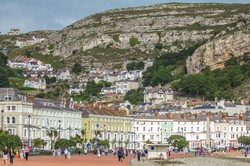In the early days of Christianity travel and communication were arduous at best, but the Romans did have a road system. Since the Holy Land was at that time part of the Roman Empire it was possible to travel into southern Europe to Rome, with cities in Greece and what is now Turkey along the way. As the Apostles and other disciples of Jesus traveled they were able to evangelize in major population centers to a certain degree. Remember, since Julius Caesar the Roman Emperors declared themselves to be gods, and were threatened by a monotheistic religion.
Secrecy in the early Christian communities was essential, since the Roman Emperors made being a Christian illegal.






 The Linear Equation and Related Equations and Inequalitieson 08/15/2024
The Linear Equation and Related Equations and Inequalitieson 08/15/2024
 Understanding Calculus: A Simplified Approach to Derivativeson 08/05/2024
Understanding Calculus: A Simplified Approach to Derivativeson 08/05/2024
 Limits: Vital Building Blocks of Calculuson 08/01/2024
Limits: Vital Building Blocks of Calculuson 08/01/2024
 Mardi Gras Collectibleson 02/02/2023
Mardi Gras Collectibleson 02/02/2023


Comments
Early Christianity came to Ireland before Patrick, and there are some signs, notably monks standing to pray with arms outstretched, that indicate an Egyptian connection. I think it right to say that the idea that St Patrick came from Scotland is erroneous, as I think that he was British,probably from South Wales or the areas of what was later to be England near to it.
Yes, it opened up a route to Constantinople and the cities of Greece and Italy, and shortened the land route to those somewhat inland. The Romans had no interest in spreading Christianity, but that spread was certainly aided by their infrastructure and their need to protect the Empire, including from attack on their trading routes at sea.
The fact that Rome kept the Mediterranean free of pirates was a great help to early Christian travelers.